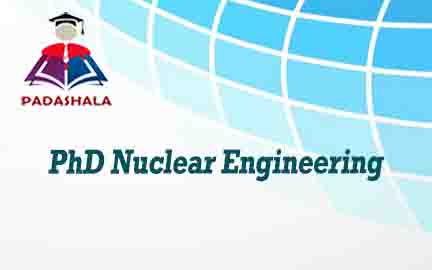The main objective of the PhD program in Nuclear Engineering is to prepare graduates for a career that includes research and/or teaching in academia or industry, as well as for leadership positions that require problem solving skills with highly specialized knowledge, often in interdisciplinary fields, and the management of finances, projects and people. Graduates of the program will be able to work The doctoral course in Nuclear Engineering is offered by the Department of Nuclear Reactors, the Department of Dosimetry and Application of Ionizing Radiation, and the Department of Physics.
The area of Reactor Studies covers reactor physics, applied and experimental nuclear physics, neutron physics, nuclear safety, and the relation between nuclear energy and the environment, computational methods, and methods of mathematical modeling. It also addresses the issues of control systems, accelerator-driven transmutation technologies, and the physics and technology of nuclear fusion.
The aim of the Physics and Technology of Thermonuclear Fusion course is to educate experts concerned with the controlled release of nuclear energy based on the fusion of light isotopes of hydrogen.
Dosimetry and Applications of Ionizing Radiation is focused on radiation physics, dosimetry and micro-dosimetry, the interaction of radiation, radio-analytical methods, radiation technology, medical and engineering applications of radio-nuclides and ionizing radiation, computational and modeling methods, radiation protection and radiation monitoring, and protection of the environment.
In the Experimental Nuclear and Particle Physics, experimental physicists are trained in particle physics and nuclear physics, in particular in the issues of construction, operation, and evaluation of data from particle detectors in international experiments, as well as in developing their skills in related areas of theoretical physics, particularly with respect to the phenomenology of strongly interacting elementary particles and a description of the quark-gluon plasma.
This Ph. D. program is offered in cooperation with national and international academic and scientific institutions, i.e. Faculty of Electrical Engineering of the Czech Technical Universit ,Czech Academy of Sciences - Institute of Physics (IP), Nuclear Physics Institute, and Institute of Plasma Physics , as well as Nuclear Research Institute the European Organization for Nuclear Research , Brookhaven National Laboratory Fermi National Accelerator Laboratory and G S I Helmholtz Zentrum für Schwerionenforschung, Darmstadt. Participation of students (internships, data collection) in research at partner institutions is very common.
The Ph.D. course is linked to research activities of individual departments and institutions and their grants.n research labs in both industry and government or as academics in universities.
